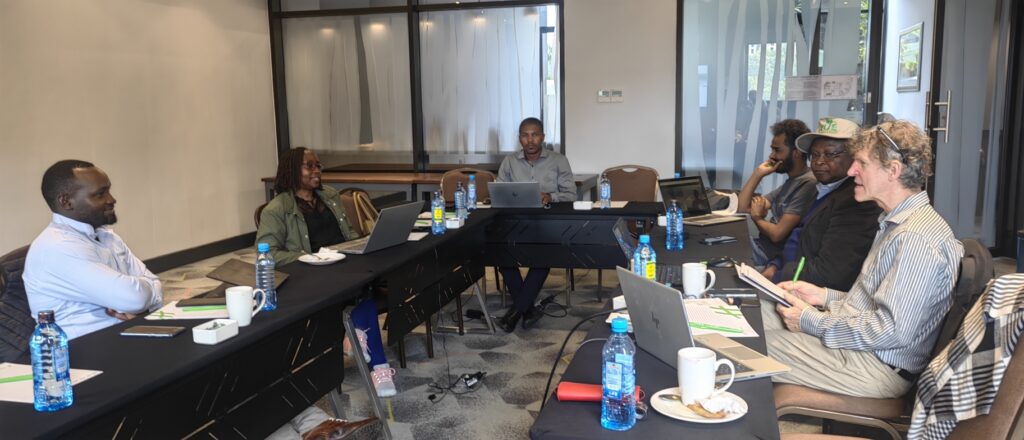How can smallholder farmers in East Africa get better access to biobased fertilizers and methods to control crop pests? That is the key question for the East African Agrobiologicals Working Group. In the coming year they will bring together regional actors to strengthen local production of agrobiologicals.
One of the most critical issues for African smallholders is how to increase their productivity, which lags behind other regions. Contributing to the problem is the relatively low use of fertilizers, only 15 per cent of the global average, and rampant crop diseases. If farmers get better access to biobased fertilizers and pest control, this could greatly improve agricultural productivity in the region.
The East African Agrobiologicals Working Group was recently formed to help make this happen and has been selected to be one of SIANI’s four expert groups in 2024. The project is led by Jacqueline Senyagwa and Philip Osano at the Stockholm Environment Institute’s Africa Center in Nairobi. We asked them to explain their work.
What is your project about?
The project convenes a multidisciplinary expert group on agrobiologicals to catalyze and support use of biobased agriculture inputs (agrobiologicals) for increased productivity and sustainable intensification for smallholder farmers in East Africa, with focus on Ethiopia, Kenya and Tanzania.
Agrobiologicals are a diverse group of products derived from naturally occurring microorganisms, plant extracts, beneficial insects or other organic matter. They are typically broken down into categories according to their use in agriculture:
- Biostimulants are products to enhance the growth and productivity of plants.
- Biopesticides are products for plant protection or biocontrol products.
- Biofertility is the term used for plant nutrition products.
What will you do?
Through a regional dialogue platform, workshops and national stakeholder meetings, we will support and stimulate increased production and use of agrobiologicals. The first step is to map key actors in the East African agrobiologicals sector and invite them to dialogue and network. We will also communicate findings, recommendations and information generated from the expert group activities to a wider audience in the region, including the SIANI network.
What type of change do you expect to achieve?
We hope for three types of change:
- The first is capacity development, where we will co-generate knowledge together with entrepreneurs, producers and users of agrobiologicals. The national dialogue platforms will let stakeholders learn from each other and link science, technology and practice in the sector. The data and information gathered will be made freely available. We will also work with media practitioners to make them more aware of the solutions presented by the increased use of agrobiologicals.
- Second, we will activate the private sector including bioentrepreneurs, financiers, farmer organizations, extension services and other actors throughout the value chain to come together and co-create development pathways for the agrobiologicals sector in the region.
- Finally, we want to involve policy regulators and see tease out policy measures that are needed to expand the agrobiologicals sector so that it is relevant and accessible for the millions of smallholders in the region.
